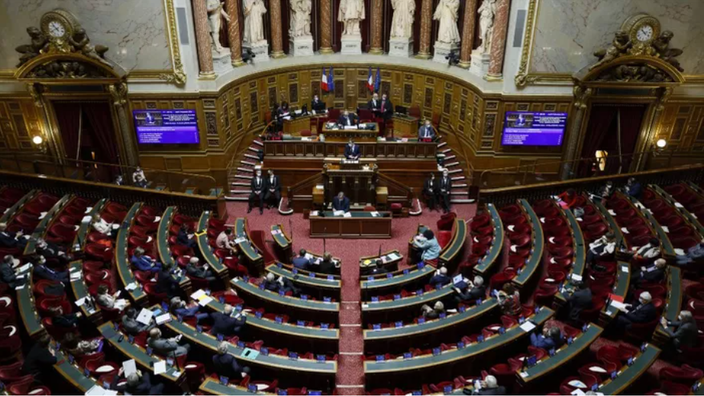The Senate adopted on Wednesday in first reading the reform of the criminal justice of minors, text resulting from an ordinance of September 2019 that the government had been authorized to take by the law of programming and reform for justice.
Read also: The reform of juvenile justice creates a stir among politicians and magistrates
This ordinance organizes a code of criminal justice for minors which is intended to replace the 1945 ordinance devoted to juvenile delinquency.
It's a "
good reform
", assures LR rapporteur Agnès Canayer.
But senators from all sides criticize the use of the ordinance and denounce a lack of consultation with the professionals concerned.
The reform should enter into force on March 31.
But the senators pushed back in committee its implementation to September 30, at the initiative of the rapporteur and the PS group which is even pushing for a postponement of one year.
This future code pursues several objectives;
Le Figaro
takes stock of what it will change.
To read also: Maurice Berger: "This reform on the sly risks worsening juvenile delinquency"
Criminal liability set at 13 years
Until now, French law did not set an age for criminal liability for minors.
It was based on the “threshold of discernment”, which it was up to the judge to assess on a case-by-case basis.
However, various international conventions (in particular the Convention on the Rights of the Child - CIDE) require France to define an age of criminal responsibility for the child, that is to say, a minimum age from which be imposed on children criminal sanctions in addition to educational measures.
The code now provides for a presumption of irresponsibility before 13 years.
At this age, the child is now considered to be endowed with “
discernment
” understood as according to which the minor “
understood and wanted his act
” and
capable of understanding the meaning of the criminal procedure
”.
Shorten judgment times
The current system and the overcrowding of juvenile justice implied long trial periods of sometimes two or three years.
A young person, a minor at the time of the facts, could appear of full age before the judge.
"
We wanted a more modern and more readable process for the child
," explains Agnès Canayer, the senator and rapporteur for the text.
Today, some young people receive sentences for acts they committed several years ago.
In the meantime, a lot of things could have happened,
”she explains.
To overcome this problem, the reform intends to cut the procedure in two stages.
A first hearing will have to rule on the guilt within a period of three months maximum (against 18 months currently on average).
A second hearing will have to be held within a period of between six and nine months, for the pronouncement of the sanction (whether it is a sentence or an educational measure).
A "single hearing" will however remain possible for minors already known to the courts.
Less pretrial detention
The objective is also to reduce the use of pre-trial detention, which today concerns 80% of imprisoned minors.
The code provides for raising the thresholds for offenses liable to authorize placement in pre-trial detention.
In the interval between the first hearing (which decides on guilt) and the second hearing (which pronounces the sentence), the minor will be subjected to a period of “
educational probation
”, which may include educational or security measures.
More power entrusted to children's judges
Juvenile judges will have more responsibility in court decisions.
It will now be up to them to take the decision to place the minor in pre-trial detention, a decision taken so far by the judge of freedoms and detention.
In addition, the less serious contraventions - which are usually the responsibility of the police court - will also be entrusted to the juvenile judge.
"
The children's judge will have a global perspective,"
Agnès Canayer suggests
.
And unlike the judge of freedoms and detention, he has real knowledge of the educational aspect
”.

